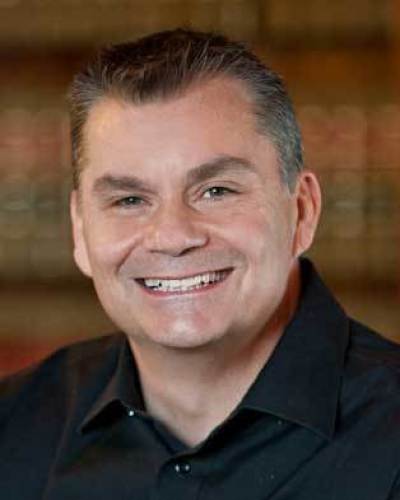What makes election fraud possible
Let’s get one thing out of the way immediately: I have no idea if election fraud occurred in the 2020 U.S. election. One side says yes and presents its evidence, the other side says no and counters with its data, and sadly I am not in a position to uncover the truth behind it all.

However, one question I can answer is whether it is possible that election fraud occurred, and that is absolutely. In fact, the question in today’s world is not so much why would people cheat in an election, but why wouldn’t they?
Says who?
The possibility of election or any other kind of fraud raises the issue of ethics in general and the primary question posed by the subject: “Is there anything wrong with anything, and why?”
Answering that question requires agreement on the three-legged stool of ethics, which is (1) objective moral truth that provides (2) a standard by which right and wrong are determined, followed by (3) an authority to enforce that standard. When God is included in the mix, things have the potential to work out well, but remove Him from the process and things go south fast.
That’s because, without God, you have no possibility of objective moral truth. Atheists and Christians agree on this and acknowledge that subjective morals are all you’re left with when God is out of the picture, and it’s now up to an ever-changing culture or (gasp!) the individual to provide a foundation for right and wrong.
Our increasingly anti-God society has embraced a post-truth worldview and that has short-circuited any hope of arriving at a real standard of good and evil. As C. S. Lewis said, you can’t spot a crooked line unless you know what a straight line looks like, and so that leaves us living among a series of crooked lines each of which are championed by their advocates.
The currently most popular askew line is the philosophy of pragmatism. If a particular set of actions undertaken by a group of activists produce their desired outcome, then the question of whether what took place was ethical is yes. Thus, if a specific crowd of individuals wants to see their candidate in office, and believes the opposition is ‘evil’, then they won’t blink an eye at cheating at the ballot box to make sure their nominee wins.
And this makes perfect sense in a world without God.
As Paul Kurtz references in his work The Humanist Alternative: “If man is a product of evolution, one species among others, in a universe without purpose, then man’s option is to live for himself.”
Dominance instead of tolerance
Once you’ve taken the plunge and devolved into post-truth and pragmatism to ascertain whether something is ethically right or wrong, all that’s left is to ensure that the chosen moral choices are enforced by a like-minded authority that has the power to make those selections stick.
It’s interesting to note that the same crowd who championed tolerance when it came to moral choices back when they didn’t have the power to make their choices the norm are now only too happy to push their way of life on everyone else. It’s exactly what Frank Herbert describes in his fictional work, Children of Dune: “When I am weaker than you, I ask you for freedom because that is according to your principles; when I am stronger than you, I take away your freedom because that is according to my principles.”
Underneath the covers
Other than culturally ‘getting their way’, is there more to the story about why post-truth pragmatists foist their will upon others? I think so.
God’s first line of moral defense is the conscience that exists in all of us. At first, sinful behavior and the conscience don’t see eye to eye because God’s moral law is embedded in all of us and we: “show the work of the Law written in their hearts, their conscience testifying and their thoughts alternately accusing or else defending them” (Rom. 2:15).
Sin is hard work because of this, but over time Scripture says a conscience can become seared (1 Tim. 4:2), which results in a kind of desperation that strives to obtain affirmation for bad behavior in hopes of keeping the conscience quieted. The way that’s done is to join with, and enlarge, groups of people who behave or believe the same way. This is a fact pointed out by atheist-turned-Christian philosopher J. Budziszewski who writes in his book The Revenge of Conscience that, “those who rationalize their sins find it to be so much work that they require other people to support them in it.”
So strong is this need that, if you don’t agree with them voluntarily, your affirmation will be obtained under compulsion, which we’re seeing done all the time in society these days. But to do that effectively requires government intervention and lawmaking that goes so far as to make it a crime even for disagreeing with their behaviors.
That brings us back to the subject of election fraud and the real question concerning it, which is again not so much why would people cheat in an election, but given that they adhere to post-truth pragmatism rather than God, why wouldn’t they?
Robin Schumacher is an accomplished software executive and Christian apologist who has written many articles, authored and contributed to several Christian books, appeared on nationally syndicated radio programs, and presented at apologetic events. He holds a BS in Business, Master's in Christian apologetics and a Ph.D. in New Testament. His latest book is, A Confident Faith: Winning people to Christ with the apologetics of the Apostle Paul.



























